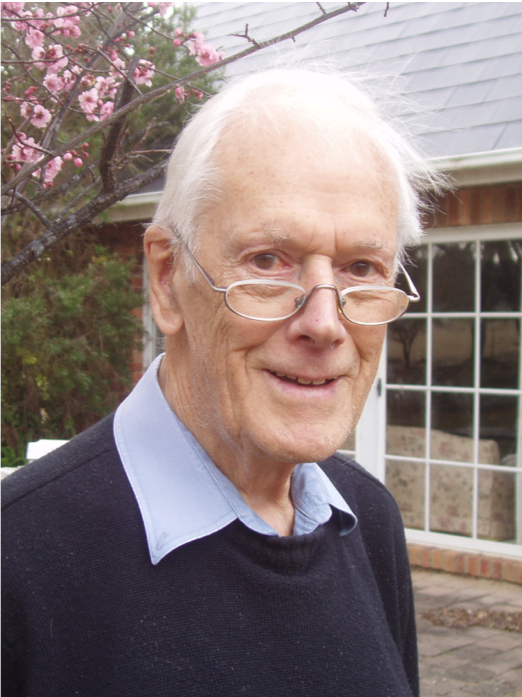Jubilee Fellow – 2015

Emeritus Professor Ronald Gates AO
BCom (UTAS), MA (Oxford), Hon DEcon (UQ), Hon DLitt (UNE), Hon FRAPI, Hon FAIUS
2015 Reflections
I became a Fellow of the Academy in 1968, when I was 45 years old and was Head of the Department of Economics and Dean of the faculty in the University of Queensland. I was researching and writing in the fields of taxation, urban economics and local government, and was developing an interest in consumer affairs. I was also active as president of the Industrial Relations Society of Queensland and as a member of the founding council of the Australian Institute of Urban Studies. Ten years later, having led a series of AIUS task forces, I became chairman of the Institute and was made an officer in the Order of Australia. Now I am aged 92 and am given to reminiscence.
During my last nine years at Queensland I was twice elected as president of the Professorial Board. I also became involved willy-nilly in a growing range of state and national activities. Among other things, I served as an honorary adviser to the Queensland Government on various matters and was the inaugural chairman of its statutory Consumer Affairs Council; I became president of the Economic Society of Australia and New Zealand; I did research for the Committee for Economic Development of Australia; I served as a consultant in Papua New Guinea to the Committees of Inquiry on Taxation and on Local Government Finance; I was a commissioner of the federal government’s Commission of Inquiry into Poverty; and I gave evidence for small local governments before several official inquiries that threatened them with amalgamation. I also continued regularly broadcasting for ABC radio and television until, in 1972, the talks department vetoed a Notes on the News “think piece” that discussed the ABC”s responsibilities. It was the first time that I had been censored in sixteen years, and I rapidly drafted a substitute piece, and then quit.
I have no doubt that my election as a fellow of the Academy (under its then title of Social Science Research Council) gave a boost to my subsequent career; but at the time I welcomed the honour chiefly as an opportunity to meet with social scientists from around Australia and to learn more about their work. I still regard that as the primary individual benefit of membership, although in a broader context I would rank highly two other contributions of the Academy. One is the dissemination of the results of social science research and, to a degree, the sponsoring of such research. The other is the identification of promising younger social scientists and, through election to membership, the enhancing of their careers. I would add that I have also welcomed the rare occasion when fellows of the Academy have found sufficient consensus to be able to announce publicly their view on a matter of public policy.
When I moved in 1977 to the University of New England, joining the then rather small band of vice-chancellors, I seemed unable to resist the continuing lure of outside commitments. I maintained my membership of the Advertising Standards Council and of the federal treasurer’s economic advisory panel, and my chairmanship of the Social Sciences Committee of the Australian National Commission for UNESCO. In 1979 I began two successive three-year terms as the inaugural chairman of the federal and state governments’ Advisory Council for Inter-government Relations, which role included overseeing a large programme of research and publication. The UNESCO involvement expanded, with my appointment as chairman of the National Commission and absences at numerous international conferences and working groups. For relaxation I composed forty-eight small piano pieces, going through all the major and minor key-signatures twice. Within the university someone coined the phrase “the visiting vice-chancellor”, and the Council invited that good friend of UNE, Sir John Crawford, to advise on roles and responsibilities.
On retirement in 1985, I continued only my chairmanship of the national Local Government Training Council. For several years I served as honorary adviser to the shire of Dumaresq. I had agreed to be a patron of the Australian celebration of the centenary of Esperanto, to be held in 1987 during a summer school at UNE, and in preparation I learnt the language. I later became president of the Australian Esperanto Association. I read detective stories in Esperanto, and decided to try my hand at writing in the language. So far I have had six small novels and three volumes of crime short stories published, variously in Vienna, Antwerp and Sydney, and I am continuing to write. That and duplicate bridge and music keep me busy.